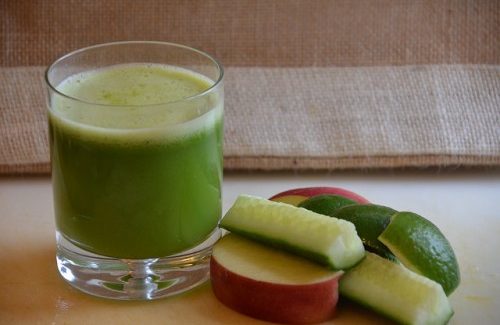
Diet Showdown-Cleansing!
Sometimes called a cleansing diet, the rise of the “detox” diet continues as we start the New Year. Detoxes and cleanses have become very popular the past few years and many claim they can provide positive impacts to your health. But the truth is that many detoxes and cleanses aren’t right for everyone. We talked with registered dietitian Sarah Downs to find out more about this diet trend.
What is a cleanse?
Sarah Downs, RD: “In reference to diet, cleansing is often defined as detoxifying or removing harmful substances from the body. Typically, a cleansing or detox diet involves a dietary regimen that attempts to remove toxins from the body. While there are many different types of detox or cleansing diets, some of the most common include fasting or eliminating major food groups, consuming large amounts of juice or fiber and using laxatives or other herbal supplements.”
So does cleansing work?
Sarah Downs, RD: “While many supporters say that cleansing diets provide numerous health benefits like weight loss, increased energy, decreased inflammation and better digestion, there currently is not any strong scientific evidence to support this. The good news is your intestines, lungs, liver and kidneys effectively remove waste from your body every day!”
What are the benefits, if any, to a detox or cleanse?
Sarah Downs, RD: “Because there is insufficient scientific data showing the positive health impacts these diets have on health, it can be hard to confidently talk about any potential benefits. However, because many of these diets promote the increase of fruits and vegetables (which we know are great for health!), cleanses may give them a kick-start to an overall healthier lifestyle. But it’s important to remember that maintaining a detox diet can be very difficult, expensive and isn’t recommended long-term.”
Is it safe?
Sarah Downs, RD: “Many of these diets are low in calories, protein, fiber and other important nutrients but, if done for a long period of time, have the potential to be harmful to our health. They also can cause some unpleasant side effects like bloating, nausea, dehydration, lack of energy, low blood sugar, changes in electrolyte levels and even vitamin or mineral deficiencies. For people with diabetes, cleanses can be especially harmful diets that severely restrict what you eat and could lead to dangerously low blood sugar.”
What’s the difference between clean eating and cleansing?
Sarah Downs, RD: “While there is no exact definition of either of these diets and there are many different varieties, typically cleansing involves following an extremely restrictive diet while clean eating focuses on a whole diet approach that is less about restricting certain foods. Many people define clean eating differently, but my definition is eating a diet that gives us more of what we need (fruits, vegetables, whole grains, etc.) and less of what we don’t (sugar, salt, etc.), but never restricting any foods.”
Bottom Line:
Sarah Downs, RD: “While cleansing diets may work for some, it’s not the best choice for all. If you choose to do a detox diet or cleanse, be sure to check with your doctor or a registered dietitian to make sure it is safe for any medical conditions you may have.
AND remember that cleanses and detox diets are often temporary fixes, so for long-term results it’s best to focus on lifestyle changes. A diet that includes a balance of whole grains, fruits and veggies, low-fat dairy, lean proteins, and healthy fats is best!”
Here are some resources to learn more:
The image “juicing” by bertholf is licensed under CC BY 2.0.


























